
News • (B)eating cancer
Bacteria to consume tumours from the inside out
A research team led by the University of Waterloo is developing a novel tool to treat cancer by engineering hungry bacteria to literally eat tumours from the inside out.

A research team led by the University of Waterloo is developing a novel tool to treat cancer by engineering hungry bacteria to literally eat tumours from the inside out.

Reseachers show how Candida albicans – a fungus living in our body – can make melanoma more aggressive. The results pave the way for antifungal therapies to complement skin cancer treatments.
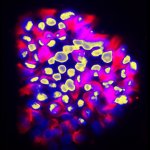
Why do some tumours spread while others remain localised? Using colon cancer cells, scientists pinpointed the criteria that influence metastasis risk, and identified a way to assess its probability.

DNA analysis of colorectal polyps provides important additional information on the development of these polyps and colorectal cancer, research finds. This leads to better diagnostics and treatment.
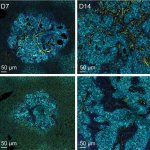
Most patients with metastatic colorectal cancer do not respond to immunotherapy—but why? A new study shows how the tumours block the immune system through two complementary mechanisms.

Biomarker testing is ushering in a novel era of therapy personalisation for gastroesophageal and colorectal cancers, according to experts presenting at the 37th European Congress of Pathology in Vienna this September. During a session on state-of-the-art in gastrointestinal biomarkers, speakers outlined how targeted therapies and immunotherapies are transforming treatment options – but…

Researchers have discovered a previously unknown mechanism that explains how bacteria within a tumor can drive treatment resistance in patients with oral and colorectal cancer.

An advanced imaging method that uses the natural glow of tissues could help detect subtle differences in the tissue’s biochemistry, offering a way to earlier detect colorectal cancer via endoscopy.

Scientists developed an AI-based approach to diagnose colorectal cancer from different microbial subgroups in the gut microbiota – a non-invasive and low-cost alternative to colonoscopy screening.
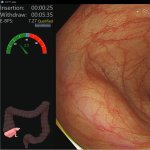
AI tools for adenoma polyp detection are designed to help increase the accuracy of colonoscopies. However, a new study finds that using AI may lead to loss of detection skills in health professionals.
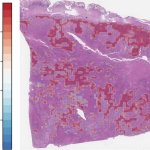
Microsatellite instability-high (MSI-H) tumors are associated with better clinical outcomes. A novel AI model for accurate MSI prediction could help battle gastric and colorectal cancers.

Do laboratory tests using blood-based biomarkers (BBB) represent the next type of universally recommended screening tests for Alzheimer's disease (AD)? Experts curb the high expectations for this type of diagnostic tool.

Melanoma testing could one day be done at home with a skin patch and test strip with two lines, similar to Covid-19 home tests, according to University of Michigan researchers.
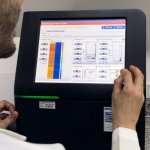
A new AI-based tool measures cancer aggressiveness by analyzing the ‘stemness’ of tumors – their similarity to pluripotent stem cells. This could pave the way for new therapies.

Starting fecal immunochemical testing (FIT) early significantly reduces both the incidence and mortality of colorectal cancer. These results of a new study support earlier screening.
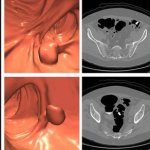
New research demonstrates CT colonography outperforms stool DNA testing in both clinical effectiveness and cost savings for colorectal cancer screening.

From organ-preserving treatments to chemo-immunotherapy combinations: five studies presented at ESTRO 2025 showcase how radiotherapy is reshaping the treatment landscape for anal and rectal cancer.

The incidence of colorectal cancer in young adults has doubled over the last 20 years, with no known reason. Now, a new study links this mysterious trend to childhood exposure to a bacterial toxin.
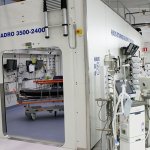
Radiation therapy is an effective component of many cancer treatments, but some patients experience severe side effects. A new study shows that hyperbaric oxygen therapy can provide long-term relief.

Engineers developed a robotic probe that can generate high-resolution 3D ultrasound images from deep inside the gastrointestinal tract. The robot reaches its target with a unique kind of movement.
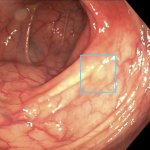
A rigorous review of evidence showed that AI-assisted technology helps identify colorectal polyps. However, its impact on preventing colon cancer remains unclear.
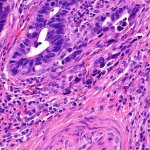
Screening for colorectal cancer has proven effective for reducing mortality, but response rates are lacking. A new study finds that putting on the pressure can provide the necessary encouragement.

For patients, a liquid biopsy which checks for circulating tumour DNA of colon cancer, resembles a standard blood test. However, the method helps avoid chemotherapy for many, a new study finds.
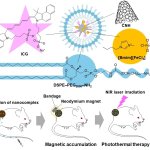
Japanese researchers have developed magnetic nanoparticles that can be directed to tumors using a magnet and then heated with a laser to destroy cancer cells while sparing healthy tissue.
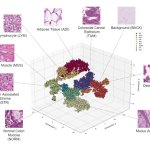
Researchers developed an advanced AI tool for automatic analysis of colorectal cancer tissue slides. The new model outperformed all predecessors in the classification of tissue microscopy samples.
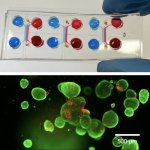
The gastrointestinal microbiome holds valuable information that can help predict whether immunotherapy will be successful against melanoma. A new “gut-on-a-chip” is designed to do exactly that.
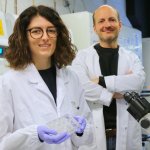
Researchers have developed a new kind of tumour-on-a-chip, which gives insight into the tumour environment and immunotherapy response. The device has been successfully tested on breast cancer samples.

Infections with Salmonella can increase the risk of colon cancer. New research sheds light on how this bacterium can cause this. The findings provide new leads for new treatments.
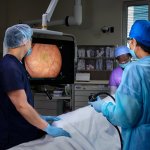
Early detection is crucial for effective treatment of colorectal cancer, but the initial stages are easily missed during endoscopy screenings. With GI Genius, Medtronic presents an AI-powered tool to help detect precancerous lesions in real-time. In an upcoming large-scale trial, the intelligent endoscopy module will demonstrate its benefit in the clinical context.

By combining mass spectrometry and mass cytometry imaging techniques, researchers can now dive deeper into tumors and map the metabolism of individual cells in tumor tissue.

Only 20-40% of patients respond positively to immunotherapy, and these rates vary across different types of cancer. Researchers now identified five key factors that determine response and survival.
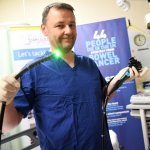
Artificial intelligence (AI) can be used to great effect in colonoscopies to spot abnormalities potentially leading to bowel cancer. This is the result of the recently completed COLO-DETECT trial.

Can a look at a patient's DNA predict progress of their colorectal cancer? Findings from a new study could lead to improved possibilities for individualised therapies.
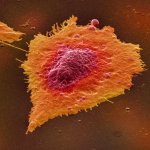
Why does the immune system sometimes fail to control the development of bowel cancer? UK and Dutch researchers discovered how cancer cells use a genetic "switch" to evade detection.

Why does obesity increase the risk of cancer and possibly metastasis? Researchers in Spain are currently investigating this very question.
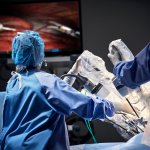
When colorectal surgery was first performed with robotic assistance in 2014, the procedure was questioned about safety, efficacy, and outcomes. Today it is an established option. Well-trained surgeons use robotic surgical systems confidently. Numerous clinical studies have verified its intraoperative benefits for patients and surgeons alike, as well as very positive outcomes for patients.
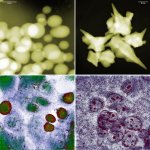
Smaller kills faster – this is what was previously thought about gold nanoparticles used to fight cancer cells. However, new research reveals a more complex picture of these interactions.

Medical AI is advancing gastrointestinal endoscopy – but what happens when it contributes to a medical error? Legal experts are pioneering efforts to develop guidelines on medical AI liability.
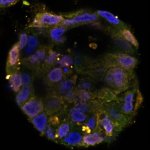
Chemotherapy kills cancer cells – but how? New research suggests that the mechanisms are different than previously understood. The finding will have implications for future cancer treatments.
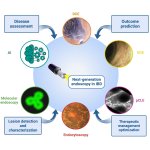
Endoscopy is pivotal in diagnosing and managing ulcerative colitis. Recent technology advances allow for early cancer detection, precise disease assessment and targeted biopsies, improving diagnosis and monitoring. The following article takes a look at the latest advancements.

Bacteria can help – or hinder – the treatment of cancer. How this happens, however, is largely unknown. Now, researchers have mapped bacteria in cancer metastases to shed more light on their role.
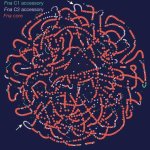
A specific subtype of a microbe commonly found in the mouth has been identified that is able to travel to the gut and grow within colorectal cancer tumors, driving cancer progression.

In diagnostics, there used to be a hard divide between radiology and pathology, where methods were largely considered incompatible with one another. However, to pave the way for next-generation diagnosis, Professor Regina Beets-Tan urged both sides to come out from their trenches and appreciate the synergies the fields have to offer. In her presentation at the European Congress of Radiology (ECR)…

Multiplex PET imaging technology could provide a ground-breaking new approach for diagnosing and treating bowel cancer patients, according to scientists in Glasgow.

Researchers work on the first prototype that applies AI to colorectal diagnosis. The prototype achieved a diagnostic acuity of 93.44% and a sensitivity of 99.7% in the detection of high-risk lesions.
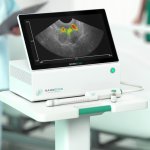
An innovative solution based on nanotechnology and ultrasound could prevent over-treatment of patients with rectal cancer. The magnetomotive ultrasound system uses nanotechnology for reliable diagnosis of any spread of rectal cancer to nearby lymph nodes.
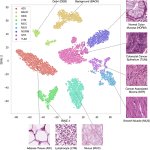
Researchers from Finland have developed an artificial intelligence tool for automatic colorectal cancer tissue analysis that outperforms prior methods.
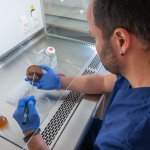
A new class of antibiotics, based on proven drugs used in cancer treatment, is now being developed by researchers at Linköping University. They could be used against resistant bacteria.

A genetic test for BRCA1 or BRCA2 gene mutations may drive women to undergo breast cancer surgery, even though their risk might not even be drastically affected by this, a new study finds.
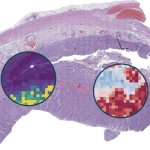
For the first time, researchers show that AI-based predictions can deliver comparable results to clinical tests on biopsies of patients with colorectal cancer (CRC).

A new analysis exploring the finances of bringing new cancer drugs to market has found that precision oncology drugs could be $1 billion cheaper to develop than non-precision drugs.

Scientists from the University of California San Diego and their colleagues in Australia have engineered bacteria that can detect the presence of tumor DNA in a live organism.

While screening programs for several of the commonest cancers are now well established, lung cancer screening has yet to reach anywhere near the same proportion of at-risk patients.
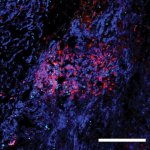
Researchers have unveiled a key mechanism of breast cancer cells to infiltrate lymph nodes. The discovery may lead to new metastasis-blocking treatments and improve patients’ lives.

Scientists have designed an AI tool that can rapidly decode a brain tumor’s DNA to determine its molecular identity during surgery — critical information that can guide treatment decisions.
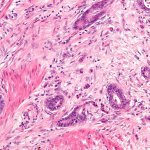
A mystery which has stumped bowel cancer researchers for decades, has been solved by scientists at the Cancer Research UK Beatson Institute and University of Glasgow.

Genomic sequencing panels as part of personalised cancer treatment have been found to only benefit one in 20 patients they are currently used for, according to a study by CNIO.

New research suggests that combining blood biomarkers with genomic information more accurately, cost-effectively predicts the risk of developing diseases.

Scientists from the University of Edinburgh have found that the accuracy of detecting bowel cancer is increased to almost 100% by carrying out a common test twice rather than once.

A new artificial intelligence model could bring much-needed clarity to doctors delivering prognoses and deciding on treatments for patients with colorectal cancer.

In a nationwide Swedish study of 207 births to women with an earlier diagnosis of colorectal cancer (CRC), researchers found an increased risk of both maternal and neonatal adverse outcomes.
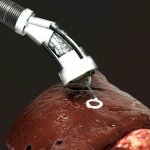
Researchers at the University of New South Wales unveil prototype device that can directly 3D print living cells onto internal organs and potentially be used as an all-in-one endoscopic surgical tool.

A new study calculated the economic cost of cancers around the world, helping policymakers allocate resources and enact policies to curb the increase in cancer-related death and disability.
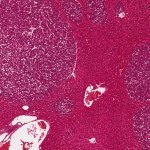
Researchers in Frankfurt have now been able to show how ferroptosis can be used to make immunotherapies against liver cancer more effective in mice.

In a promising study, Canadian researchers have shown for the first time in mice that modifying intestinal flora before surgery could reduce postoperative complications in colorectal cancer patients.
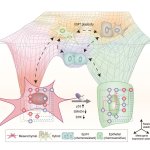
A Korean research team successfully changed the properties of carcinogenic cells in the lungs and eliminate both drug resistance and their ability to proliferate out to other areas of the body.

Immunotherapy prior to surgery is surprisingly effective for patients with a certain type of colorectal cancer (dMMR/MSI-H CRC). These new study results contrast current treatment regimens.
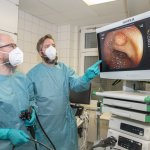
Researchers have now found that artificial intelligence (AI) can improve the effectiveness of colonoscopy in the presence of Lynch syndrome.

Researchers in Barcelona discovered the population of residual tumour cells responsible for the recurrence of colorectal cancer in other organs after removal of the primary tumour.
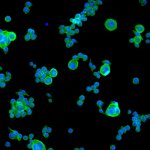
Colorectal cancer is one of the most common cancers. A team from the University of Geneva has found an alternative for patients who have developed resistance to chemotherapy treatments.
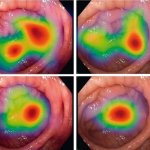
Artificial intelligence (AI) is increasing its foothold in endoscopy. Although the algorithms often detect pathologies faster than humans, their use also generates new problems. PD Dr Alexander Hann from the University Hospital Würzburg points out that the use of AI helpers can affect not only the reporting of findings – but also the person making the findings.

A randomized study shows colonoscopy screening reduces the risk of colorectal cancer by 18 percent. The reduction is much smaller than experts previously assumed.

It’s widely known that more than 70% of today’s medical decisions involve the results of laboratory tests, but the insights clinicians derive from these tests today may only be scratching the surface of their potential.

A newly developed capsule that tunnels through mucus in the GI tract could be used to orally administer large protein drugs such as insulin.

Two-dimensional (2D) cultured cell lines and animal models have been the principal research tools for the past decade, but have several shortcomings. Three-dimensional cell cultures, or organoids, show great promise here.

Development of effective live bacterial therapeutics may depend more on using and re-introducing native microbes that can stick around than how the microbes are modified.

New research suggests that providing a break in treatment to patients with advanced bowel cancer could not only benefit a patient’s quality of life but could also help reduce costs.

A new AI platform can analyze genomic data extremely quickly, picking out key patterns to classify different types of colorectal tumors and improve the drug discovery process.

Colonoscopies performed with AI support may yield an increase in the overall rate of detection of adenoma, or cancerous and precancerous polyps, by 27% in average-risk patients, according to new data.
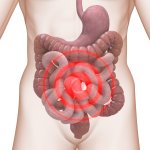
More than 70% of patients with bowel cancer are not diagnosed using screening programmes meaning diagnoses are often made late, when the cancer is at an advanced stage, according to new research.

A protein vital in determining the organs affected by metastasis has been identified by Swiss researchers. This could lead to the development of therapeutic approaches to suppress metastasis.
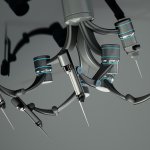
During the first Chemnitz’ Robotic-Symposium, two experts reported on the current state and the future of robot-assisted surgery and highlighted why it is a good time to be involved in this field of technology.

A new biodegradable gel improves the immune system’s ability to keep cancer at bay after tumors are surgically removed.

For a long time, the origin of metastasis remained obscure. Now, scientists have discovered some of the mechanisms these cells arise.

Close liaison between pathologists and data scientists is pivotal in the successful introduction of digital pathology and artificial intelligence (AI) into clinical workflows, according to one of France’s leading pioneers in the field.

Fully digitising pathology operations has led to greater efficiency, cost savings, and quicker diagnosis for the Laboratory of Pathology East Netherlands (LabPON).

A miniature colonoscopy robot on tank-like treads, which carries a camera and uses other small surgical tools, could have clear benefits for both patients and endoscopists.

When the coronavirus first struck in the US, hospitals in New York City were the first to feel the impact. Radiologists Professor Judy Yee, M.D., and Mark C. Liszewski, M.D., describe the lessons learned and talk about their firsthand experiences.
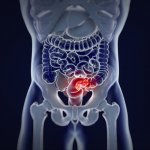
The number of colorectal cancer (CRC) cases diagnosed fell dramatically by 40% in a year during the Covid-19 pandemic, new research presented at United European Gastroenterology (UEG) Week Virtual 2021 has shown. The research, which was conducted across multiple hospitals in Spain, compared data from the first year of the Covid-19 pandemic with data from the previous year. Of 1,385 cases of CRC…
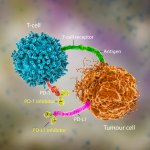
Classic antidepressants could help improve modern cancer treatments. They slowed the growth of pancreatic and colon cancers in mice, and when combined with immunotherapy, they even stopped the cancer growth long-term. In some cases the tumors disappeared completely, researchers at the University of Zurich (UZH) and University Hospital Zurich (USZ) have found. Their findings will now be tested in…

Decreasing the rate of missed lesions could translate into fewer cases of colon cancer.
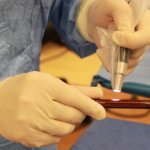
Customizable to individual patients and requiring less than 10 minutes to prepare and use, new surgical implant coating prevented 100% of infections in mice.
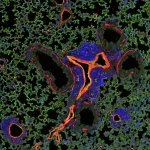
Scientists from the German Cancer Research Center (DKFZ) and the Medical Faculty Mannheim, Heidelberg University, have identified a new growth factor produced by blood vessels that enables tumor cells to metastatically colonize organs.

The risk of colorectal cancer can be predicted more accurately by determining seven blood-based micro-RNAs (miRNAs) than by using traditional methods - and can be done so many years before a diagnosis is made. In a current study, researchers from the German Cancer Research Center and the National Center for Tumor Diseases (NCT) Heidelberg show that miRNA profiles provide greater predictive…
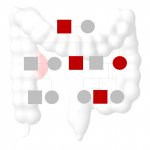
Scientists from the German Cancer Research Center and Heidelberg University Hospital have for the first time been able to delay the development of hereditary colorectal cancer with a protective vaccination. Mice with a hereditary predisposition to colorectal cancer survived significantly longer after vaccination than unvaccinated animals. Combining the vaccination with an anti-inflammatory drug…
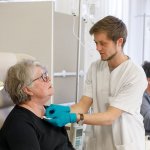
Quality assurance in cancer medicine has a reputation for being expensive and involving considerable outlay. For the first time, a cost-effectiveness analysis has now shown that patients treated in certified cancer centers not only survived longer than patients in non-certified hospitals, but also cost less, despite the greater resource commitment required. This was established by health…
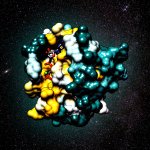
A new way to target a mutant protein which can cause the deadliest of cancers in humans has been uncovered by scientists at Leeds. The mutated form of the RAS protein has been referred to as the “Death Star” because of its ability to resist treatments and is found in 96% of pancreatic cancers and 54% of colorectal cancers. RAS is a protein important for health but in its mutated form it can…
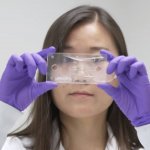
Integrating laboratory functions on a microchip circuit is helping improve the cost-effectiveness of drug development. So-called ‘lab-on-a-chip’ or ‘human-on-a-chip’ technology can highlight which treatments may, or may not, work before advancing along the clinical trial process. It can also have benefits for chronic and rare diseases, as well as helping shape personalised medicine.…

Final results from a study of a blood test that can detect more than 50 types of cancer have shown that it is accurate enough to be rolled out as a multi-cancer screening test among people at higher risk of the disease, including patients aged 50 years or older, without symptoms. In a paper published in the cancer journal Annals of Oncology, researchers report that the test accurately detected…
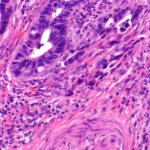
Bowel cancer survival rates could be improved if chemotherapy drugs were delivered via tiny nanoparticles to the diseased organs rather than oral treatment. That’s the finding from Indian and Australian scientists who have undertaken the first study, using nanoparticles to target bowel cancer, the third most common cancer in the world and the second most deadliest.
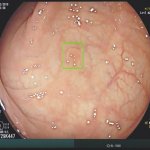
The U.S. Food and Drug Administration authorized marketing of the GI Genius, the first device that uses artificial intelligence (AI) based on machine learning to assist clinicians in detecting lesions (such as polyps or suspected tumors) in the colon in real time during a colonoscopy. “Artificial intelligence has the potential to transform health care to better assist health care providers and…
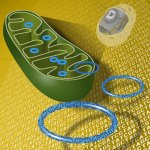
DNA errors in the cell’s energy ‘factories’ increases the chances of survival for people with bowel cancer, also known as colorectal cancer, according to a new study. Studying how DNA errors (mutations) can drive cancer development, as well as help it adapt and evolve, has been a key focus of cancer research. But much of that focus has been on DNA found in the cell’s nucleus. Experts say…
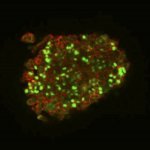
An innovative hydrogel – called a double network (DN) gel – can rapidly reprogram differentiated cancer cells into cancer stem cells, researchers at Hokkaido University and the National Cancer Center Research Institute have reported in the journal Nature Biomedical Engineering. The hydrogel can be used to help develop new cancer therapies and personalized medicines targeting cancer stem cells.
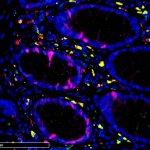
Do BMMFs, the novel infectious agents found in dairy products and bovine sera, play a role in the development of colorectal cancer? Scientists led by Harald zur Hausen detected the pathogens in colorectal cancer patients in close proximity to tumors. The researchers show that the BMMFs trigger local chronic inflammation, which can cause mutations via activated oxygen molecules and thus promote…

Miniature cameras which patients can swallow to get checked for cancer are being trialled across the NHS. The imaging technology, in a capsule no bigger than a pill, can provide a diagnosis within hours. Known as a colon capsule endoscopy, the cameras are the latest NHS innovation to help patients access cancer checks at home. Traditional endoscopies mean patients need to attend hospital and have…
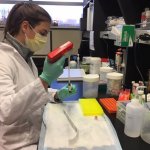
A new study from Washington University School of Medicine in St. Louis demonstrates that a liquid biopsy examining blood or urine can help gauge the effectiveness of therapy for colorectal cancer that has just begun to spread beyond the original tumor. Such a biopsy can detect lingering disease and could serve as a guide for deciding whether a patient should undergo further treatments due to some…

One more piece of the puzzle has fallen into place behind a new drug whose anti-cancer potential was developed at the University of Alberta and is set to begin human trials this year, thanks to newly published research. “The results provide more justification and rationale for starting the clinical trial in May,” said first author John Mackey, professor and director of oncology clinical…

When cancer is confined to one spot in the body, doctors can often treat it with surgery or other therapies. Much of the mortality associated with cancer, however, is due to its tendency to metastasize, sending out seeds of itself that may take root throughout the body. The exact moment of metastasis is fleeting, lost in the millions of divisions that take place in a tumor. “These events are…
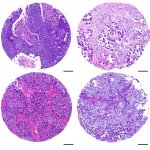
A new generation of tissue microarrays are delivering more efficient and time-effective solutions to answering complex clinical and scientific questions. Sitting at the core of this new approach is digital pathology, allowing specific and targeted analysis of small areas of tissue.
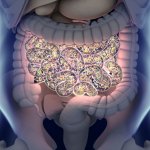
A microbe found in the colon and commonly associated with the development of colitis and colon cancer also may play a role in the development of some breast cancers, according to new research from investigators with the Johns Hopkins Kimmel Cancer Center and its Bloomberg~Kimmel Institute for Cancer Immunotherapy. Breast tissue cells exposed to this toxin retain a long-term memory, increasing the…
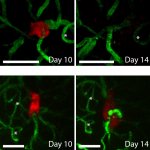
Brain metastases can only develop if cancer cells first exit the fine blood vessels and enter into the brain tissue. To facilitate this step, cancer cells influence blood clotting, as scientists from the German Cancer Research Center and Heidelberg University Hospital have now been able to show in mice. The cancer cells actively promote the formation of clots, which helps them to arrest in the…
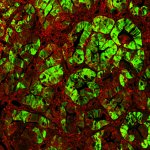
Colon cancer stem cells have one weak spot: the enzyme Mll1. An MDC team led by Walter Birchmeier has now shown in Nature Communications that blocking this protein prevents the development of new tumors in the body. Since colonoscopies were introduced in Germany for early cancer detection, the number of diagnoses of advanced cancer every year has decreased, as precancerous lesions can now be…

Cancer cells spread by switching on and off abilities to sense their surroundings, move, hide and grow new tumors, a new study has found. This sensitivity to their surroundings is the key ability that makes small numbers of cancer cells better at spreading than other cells in a tumor.
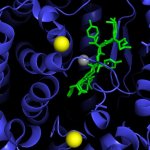
Researchers have found that a class of commonly-used heart drugs may also improve patients’ responses to anti-cancer immunotherapies called PD(L)1 inhibitors, according to preliminary findings to be presented at the 32th EORTC-NCI-AACR Symposium on Molecular Targets and Cancer Therapeutics.
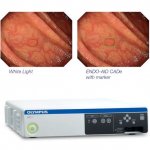
Olympus Corporation announced the launch of Endo-Aid, a platform powered by artificial intelligence (AI) that includes the endoscopy application Endo-Aid CADe (computer-aided detection) for the colon. This new AI platform enables real-time display of automatically detected suspicious lesions and works in combination with Olympus’ recently introduced EVIS X1, its most advanced endoscopy system…
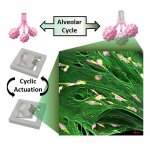
A team at Purdue University has developed a novel testing platform to evaluate how breast cancer cells respond to the recurrent stretching that occurs in the lungs during breathing. The technology is designed to better understand the effects that the local tissue has on metastatic breast cancer to study how metastases grow in a new tissue.

An AI (Artificial Intelligence) assisted polyp detector is helping endoscopists find more lesions during colorectal examinations. Leading endoscopists highlighted how the system is improving performance and finding flat or hidden polyps that the human eye could miss, in a webinar entitled “Artificial Intelligence - How to unleash the potential for colorectal polyp detection.” Hosted by the…
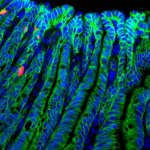
Researchers have found a surprising effect of the stem cell-regulating growth factor R-spondin in intestinal cancer.

If a father or brother has prostate cancer, his son or brother has an increased risk of this type of cancer. Whether this also applies when precancerous stages of this cancer are discovered in relatives has not yet been known. Now scientists have analyzed data from more than six million men to find out how high the risk of prostate cancer is in this case. Researchers at the German Cancer Research…
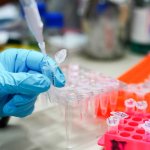
To develop and manufacture COVID-19 test kits in massive quantities was not part of their 2020 business plans. Yet, as the epidemic evolved into a global pandemic, the urgent need for diagnostic and antibody SARS-CoV-2 test kits triggered an unprecedented scramble among medical manufacturers.
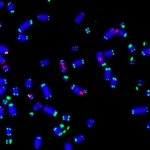
In a new study, researchers from the University of Copenhagen have discovered two important functions of a protein called RTEL1 during cell division. The researchers hope that the new knowledge will help to find new cancer treatments. One of the body's most important processes is cell division, which occurs throughout life. Normal cells only have a limited number of divisions, while in cancer…

Bringing molecular and digital pathology closer together through a more integrative approach can lead to clear advantages for diagnostic and research workflows. During the recent Digital Pathology and AI Congress (London), Professor Viktor Koelzer explored the benefits and paid particular attention to colorectal cancer (CRC).
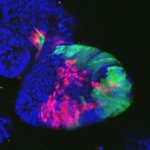
One of the main features of colorectal cancer is that there are considerable differences between the tumors of individual patients - at genetic level and hence in terms of the response to treatment too. Researchers from the German Cancer Consortium (DKTK) have developed a method that allows these differences to be identified more effectively.

Aspirin is associated with a reduction in the risk of developing several cancers of the digestive tract, including some that are almost invariably fatal, such as pancreatic and liver cancers.

People who are at high risk of developing lung cancer, such as heavy smokers, are routinely screened with computed tomography (CT), which can detect tumors in the lungs. However, this test has an extremely high rate of false positives, as it also picks up benign nodules in the lungs. Researchers at the Massachussetts Institute of Technology (MIT) have now developed a new approach to early…
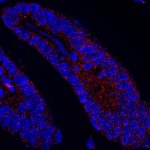
An international team of researchers from the University of Zurich, the University Hospital Zurich, Heidelberg and Glasgow has identified a novel function for the cell death regulating protein MCL1: It is essential in protecting the intestine against cancer development – independent of bacterial-driven inflammation. These findings have implications for the use of MCL1 inhibitors, currently…
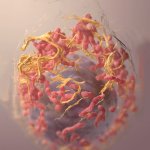
Could the ability of cancer cells to quickly alter their genome be used as a weapon against malignant tumours? Researchers at Uppsala University have succeeded in developing a substance that has demonstrated promising results in experiments on both animal models and human cancer cells. The study is published in the journal Nature Communications.

Scientists from the German Cancer Research Center (DKFZ) and the Hebrew University in Jerusalem demonstrated in mice that intestinal bacteria reprogram DNA activity in cells of the gut mucosa and thus have a considerable impact on the development of the healthy gut.
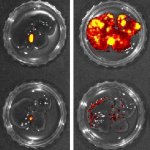
A protein that helps colorectal cancer cells spread to other parts of the body could be an effective treatment target, researchers from Hokkaido University discovered. Colorectal cancer patients with an immune system-regulating protein called interleukin 6 (IL-6) are more likely to have recurring tumors that can also spread to the liver, according to research published in the journal Cancer…
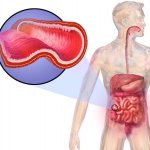
Researchers from Karolinska Institutet, Örebro University and Aarhus University, Denmark, have published the largest study to date on the risk of colorectal cancer in Crohn's disease. The article is published in the journal The Lancet Gastroenterology Hepatology. Crohn's disease is a chronic inflammatory bowel disease (IBD). Several previous studies have reported an increased risk of colorectal…

One of the causes of breast cancer may be inflammation triggered by harmful bacteria say researchers. Scientists say their idea – as yet unproven – is supported by the available evidence, which is that bacterial induced inflammation is linked to cancer. The paper in the journal Medical Hypotheses is by Lancaster University medical student Auday Marwaha, Professor Jim Morris from the…
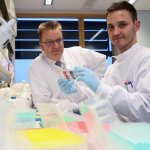
Researchers at Cardiff University have discovered a new type of killer T-cell that offers hope of a “one-size-fits-all” cancer therapy. T-cell therapies for cancer - where immune cells are removed, modified and returned to the patient’s blood to seek and destroy cancer cells - are the latest paradigm in cancer treatments. The most widely-used therapy, known as CAR-T, is personalised to each…

Diseases such as cardiovascular diseases, cancer or certain lung diseases are among the most common non-natural causes of death today and account for about 70 percent of deaths worldwide. They are defined by the World Health Organization (WHO) as non-communicable because they are assumed to be caused by a combination of genetic, lifestyle and environmental factors and cannot be transmitted…

A team of researchers from the National University of Singapore (NUS) has discovered a new personalised tool to detect cancer, predict patient survivability and how well a cancer patient would respond to immunotherapy. This tool is a specially-designed cancer 'scorecard' to be used with the standard blood test for cancer (also known as liquid biopsy). This 'scorecard', which the team termed as…
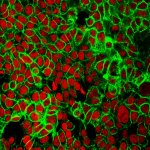
Patients with colorectal cancer have a greater chance of survival if they are operated in hospitals with a high case load. This is because complications that can occur after surgery can be better managed there. Tumours of the colon, so-called colorectal carcinomas, are the second to third most frequent tumours in women and men in Germany. The surgical removal of the tumours is a central component…

For the early detection of colorectal cancer, patients with statutory health insurance are entitled to two colonoscopies. If the first examination does not reveal any abnormal findings, a follow-up after a period of ten years is recommended. Scientists at the German Cancer Research Center are now systematically investigating when and how often tissue lesions are detected during the follow up…

Five talented robotics specialists were selected by an international jury for the finals of the Kuka innovation competition from among 30 applications from all over the world. For the first time, the focus was put on medical robotics and the topic of “Healthy Living”. Each of the finalists were provided with the sensitive Kuka lightweight robot LBR Med and a 3D vision system from Roboception…
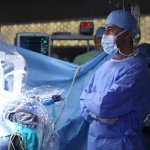
The first use of a robot-supported surgical intervention was reported in 1985, when the robot arm PUMA 560 placed a needle for a cerebral biopsy using CT guidance. Since then, strong growth in the market for robotic surgery has occurred, due to an increasing automation demand in the healthcare as a whole and greater concentration on minimally invasive surgery (MIS) for faster recovery.…

The results of a major study across 195 countries, presented at UEG Week Barcelona 2019, indicate that global death rates for pancreatic cancer and incidence rates for colorectal cancer both increased by 10% between 1990 and 2017. The Global Burden of Disease study, is the first to provide comprehensive worldwide estimates of the burden, epidemiological features and risk factors of a number of…

The British Medical Journal (BMJ) published a new recommendation on colorectal cancer screening on October 2nd, 2019. The main point: Screening participation is only recommended to people with at least a three percent chance of developing colorectal cancer in the next 15 years. As a result, the majority of women would be advised not to participate in screening – even though its benefit to them…

Pathology is embracing digitisation just as radiology did over 20 years ago and both specialties are looking at new ways to integrate each other in their workflows. AI could fuel this sparkling alliance, giving it further means to improve cancer treatment.

Researchers from Northwestern University are using Argonne supercomputers to advance the development of an optical microscopy technique that can predict and quantify cancer risks at extremely early stages. The basic principle driving Allen Taflove’s computational electrodynamics research — which bears the potential to transform how we diagnose, and possibly treat, various forms of cancer —…
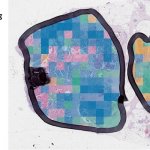
Treating physicians need information about the molecular subtype of the tumor if they are to provide targeted therapy for colorectal carcinoma. A research team from University Hospital Zurich and the University of Oxford have now developed a method to predict the molecular classification of colorectal cancer from digital pathology slides.
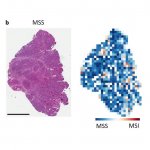
Changes in certain sections of the genetic material of cancer cells, so-called microsatellites, can provide an important indication of whether immunotherapy may be successful in a patient with stomach or colorectal cancer. Scientists from Uniklinik RWTH Aachen, the German Cancer Research Center (DKFZ), the German Cancer Consortium (DKTK) and the National Center for Tumor Diseases Heidelberg (NCT)…
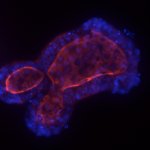
Scientists from the German Cancer Research Center (Deutsches Krebsforschungszentrum, DKFZ) and the Mannheim University Medical Center have now discovered that a certain group of cancer drugs (MEK Inhibitors) activates the cancer-promoting Wnt signalling pathway in colorectal cancer cells. This can lead to the accumulation of tumor cells with stem cell characteristics that are resistant to many…
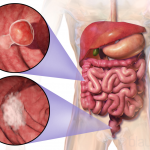
The rate of bowel cancer – also known as colorectal cancer or CRC – is rising among adults aged 20-49 in Europe, suggests new research. Rates rose most steeply among the youngest age group (20-29 years), and the authors warn that if the trend continues, screening guidelines may need to be reconsidered. Rates tend to be lower among people over 50, but the opposite is true among younger adults…

Dr Georg Ralle, General Secretary of the association ‘Network against Colon Cancer’ since 2012 as well as moderator of the symposium ‘The New Measurement of Oncology’, hosted by the National Centre for Tumour Diseases Heidelberg (NCT), clearly voices his dissatisfaction with the German ‘wait it out mentality’. He sharply criticised the Federal Joint Committee (G-BA) and here also…

It has long been thought that stress contributes to cancer progression. Scientists from the University of Basel and the University Hospital of Basel have deciphered the molecular mechanisms linking breast cancer metastasis with increased stress hormones.

Shahid Umar, PhD, researcher with The University of Kansas Cancer Center, has dedicated two decades of his scientific exploration to better grasp the connection between colon cancer and the human microbiome. Called the “forgotten organ,” the microbiome comprises trillions and trillions of microbes, including bacteria, fungi and viruses, in our body.

Current faecal blood tests for colorectal cancer have a sixty percent false positive rate. New funding from Cancer Research UK is helping scientists at Cardiff University to find better, safer tests. Inaccuracy of initial tests for colorectal cancer are putting patients at unnecessary risk, highlighting vital need for the development of precise and non-invasive testing. A grant of over £400,000…

The pill could be blurring your social judgement ‒ but perhaps not enough so you'd notice. By challenging women to identify complex emotional expressions like pride or contempt, rather than basic ones like happiness or fear, scientists have revealed subtle changes in emotion recognition associated with oral contraceptive pill (OCP) use. Published in Frontiers in Neuroscience, their study found…
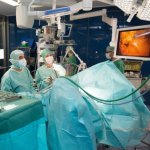
Physicians in Germany remove around 200,000 gall bladders annually, mostly by minimally invasive surgery, the so-called keyhole surgery. While gall bladders and appendices can be removed through a tiny aperture in the body, large tumours cannot. Patients also profit from the keyhole technique with joint and bone problems in the knee, shoulder or elbow. Advantages: small cuts, less blood loss,…

A pathology test that applies artificial intelligence (AI) to characterize tissue samples can accurately predict clinically significant prostate cancer disease progression following surgery, according to a study conducted at the Icahn School of Medicine at Mount Sinai.
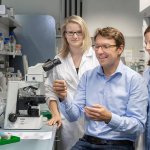
Cell stress in combination with an altered microbiota in the colon drives tumour growth. Previously, it was assumed that this combination only contributes to inflammatory intestinal diseases.
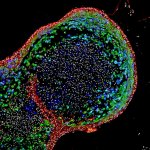
Scientists working to bioengineer the entire human gastrointestinal system in a laboratory now report using pluripotent stem cells to grow human esophageal organoids.
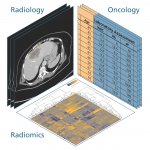
Neuroscientist Lynda Chin MD, Founder and CEO of Real-world Education Detection and Intervention, has little doubt: ‘Artificial intelligence to the rescue,’ she proclaimed in her keynote address at the Artificial Intelligence and Machine Learning Summit, held in Las Vegas this spring. ‘We need a system and analytics to interpret data!’ she urged, despite being well aware that building a…

Obesity, cancers and other gastrointestinal diseases have digestive systems all over Europe in a chokehold. In a new report, non-profit organisation United European Gastroenterology (UEG) sheds a spotlight on the issues, challenges and inequalities of digestive health - and points out ways to fix the most pressing problems.
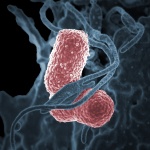
Scientists from the German Cancer Research Center (DKFZ) have been studying how the immune system succeeds in keeping pathogens in check. For the first time, the researchers have now discovered antibodies that are capable of disarming not only one specific bacterium but a whole variety of microorganisms at once. The newly discovered antibodies recognize a tiny sugar structure found on the surface…

An epidemiological study conducted by researchers at University of California San Diego School of Medicine and Seoul National University suggests that persons deficient in vitamin D may be at much greater risk of developing diabetes. The scientists studied a cohort of 903 healthy adults (mean age: 74) with no indications of either pre-diabetes or diabetes during clinic visits from 1997 to 1999,…

Cancer is a genetic disease caused by abnormal changes over time to genes that control cell function, typically starting in a single cell (an acquired mutation) and often not linked to an inherited genetic mutation. In other words, most cancers happen by chance. Only about 5 to 10 percent of cancers are due to an inherited genetic mutation, says Monique Lubaton, MGC, CGC, cancer genetic counselor…

A Case Western Reserve University School of Medicine researcher has compiled evidence from more than 100 publications to show how obesity increases risk of 13 different cancers in young adults. The meta-analysis describes how obesity has shifted certain cancers to younger age groups, and intensified cellular mechanisms promoting the diseases. Cancer typically associated with older adults over 50…

The decline in cancer of the intestines – colorectal cancer – is one of the major success stories of the past 30 years in Europe say researchers, as they predict that in 2018 death rates from the disease will continue to fall by around seven per cent compared to 2012. In a study published in the leading cancer journal Annals of Oncology, researchers predict that death rates in the European…
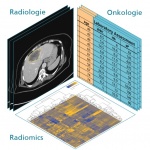
What effect does a particular cancer medicine or radiation therapy have on patients? To find out, physicians use CT images to determine whether a tumor’s size changes during the course of treatment. In the PANTHER project, a joint team of experts aims at gaining further valuable information from these images. In the future, doctors will be able to find out at an early stage whether a cancer…

Although modern medicine has made progress in the fight against cancer, the fear of cancer diseases is widespread. Still, regular screenings are no matter of course. Only almost every fifth person over 55 years has undergone a colonoscopy even though it is recommend for this age group as cancer prevention. What influences people to undergo these screenings? Screening or not? In making this…

Early detection of mesenteric ischemia increases treatment options and the possibility of a full recovery, but the condition’s rarity may lead to a delay in diagnosis while more common causes of abdominal pain are explored. An article in the February 2018 issue of Critical Care Nurse (CCN) aims to heighten nurses’ knowledge of mesenteric ischemia and infarction (MI), which are infrequent but…
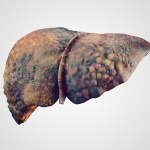
Patients with cirrhosis should be screened regularly for liver cancer, though few are – in part because busy physicians often don’t order the screening tests, said UT Southwestern oncologists. “The frequency of liver cancer is increasing rapidly in the U.S. and liver cancer-related mortality has nearly doubled over the past decade. The poor prognosis of the disease is largely driven by the…

New research from the University of California, Los Angeles (UCLA) could help explain the link between a high-cholesterol diet and an elevated risk for colon cancer. In a study of mice, scientists from the David Geffen School of Medicine at UCLA discovered that boosting the animals’ cholesterol levels spurred intestinal stem cells to divide more quickly, enabling tumors to form 100 times…
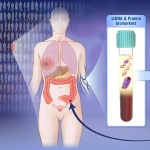
Johns Hopkins Kimmel Cancer Center researchers developed a single blood test that screens for eight common cancer types and helps identify the location of the cancer. The test, called CancerSEEK, is a unique noninvasive, multianalyte test that simultaneously evaluates levels of eight cancer proteins and the presence of cancer gene mutations from circulating DNA in the blood. The test is aimed at…
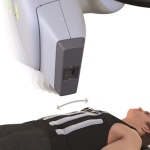
In Rennes, France, more than 850 patients have already been treated with a top accelerator equipped with a multileaf collimator, the first of its kind in the country. Brittany’s capital Rennes is leading stereotactic radiotherapy practice as Eugène Marquis Cancer Centre gears up to welcome worldwide technicians to train on the latest CyberKnife system, Accuray’s powerful robotic radiosurgery…
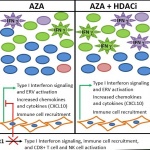
Johns Hopkins Kimmel Cancer Center researchers demonstrated that mice with ovarian cancer that received drugs to reactivate dormant genes along with other drugs that activate the immune system had a greater reduction of tumor burden and significantly longer survival than those that received any of the drugs alone. The study already spurred a clinical trial in ovarian cancer patients. The…
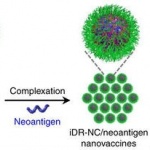
Scientists are using their increasing knowledge of the complex interaction between cancer and the immune system to engineer increasingly potent anti-cancer vaccines. Now researchers at the National Institute of Biomedical Imaging and Bioengineering (NIBIB) have developed a synergistic nanovaccine packing DNA and RNA sequences that modulate the immune response, along with anti-tumor antigens, into…

Imaging is increasingly useful in detecting colorectal cancer (CRC) liver metastases and evaluating how these lesions respond to treatment. Dr Daniele Regge reviewed all the latest advances during last September’s Madrid meeting of the European Society of Medical Oncology (ESMO)

Selective internal radiotherapy (SIRT) is often only looked at from a palliative perspective. However, the procedure is now also increasingly moving into the curative field, as Prof. Dr. Jens Ricke, Chair of Radiology at the Ludwig-Maximilian University Munich and Director of the Clinic and Polyclinic for Radiology at the University Hospital of the LMU reports. “As a locoregionally used…
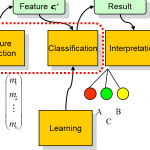
In the nineties Deep Blue, the famous chess computer, defeated Kasparow. Only a year ago Google’s Deepmind managed to master the ancient Chinese Go, known for its utmost complexity.

Every cancer is different and every patient is different. This insight gained in personalised medicine prompted oncology researchers to focus more on the individual patient’s immune system. It is particularly the immune system’s ability to destroy cancer cells that raised hope.

Early-stage colon cancer patients could benefit in the future from specific genetic tests that forecast their prognosis and help them make the right decision regarding chemotherapy.

Pancreatic cancer is one of the most deadly types of malignancies, with a 5-year survival rate after late diagnosis of only about 5%. The majority of patients—about 80%—receive their diagnosis too late for surgery. The disease spreads quickly and resists chemotherapy. In short, there is an urgent need for diagnostic tools to identify this cancer in its earliest stages.

Canadian researchers have invented an intraoperative probe that reliably detects multiple types of tumour cells.

Billy Boyle, Founder and CEO of Owlstone Medical, a diagnostics company developing a breathalyzer for disease, is to be awarded the Royal Academy of Engineering’s prestigious Silver Medal. The award recognizes engineer Billy’s work in spearheading the development of the company’s Breath Biopsy platform and driving a vision to save 100,000 lives and $1.5 billion in healthcare costs.

Raising the age limit for routine genetic testing in colorectal cancer could identify more cases of families affected by Lynch syndrome, a condition that accounts for around 5% of all colon cancers, according to new research to be presented at the annual conference of the European Society of Human Genetics.

New research further illuminates the surprising relationship between blood sugar and brain tumors and could begin to shed light on how certain cancers develop. While many cancers are more common among those with diabetes, cancerous brain tumors called gliomas are less common among those with elevated blood sugar and diabetes, a study from The Ohio State University has found. The discovery builds…

Pentax Medical EMEA announces its continued cooperation with SMART Medical to support the distribution and deployment of SMART’s G-EYE technology integrated with Pentax Medical’s HD+ systems to the EMEA market.

Endoscopy Devices Market Report, published by Allied Market Research, forecasts that the global market is expected to garner $40,854 million by 2022 from $27,273 million in 2015, registering a CAGR of 5.7% during the period 2016 to 2022. The flexible endoscopes are expected to dominate the global endoscopy devices market. North America is projected to continue its lead, accounting for more than…

Colon cancer: nutritionists at University of Jena clarify protective effect of nuts.
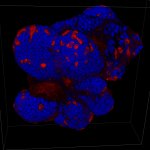
Professor Hans Clevers, researcher and group leader at the Hubrecht Institute in Utrecht, the Netherlands, invented the organoids, a ground-breaking new technique to grow new ‘organs’ and to test medication.

How to cut the high cost of cancer drugs engendered high interest at the recent Forum on Hospital Management held in Vienna.

Patients with locally advanced rectal cancer have been treated with intra-operative radiotherapy (IORT) for over twenty years. Partly due to this type of radiation, survival rates in a group of patients considered to have inoperable cancer changed dramatically from five to 70 percent.

Changes in the genetic make-up of tissue samples can be detected quickly and easily using a new method based on nanotechnology. This report researchers from the Swiss Nanoscience Institute, the University of Basel and the University Hospital Basel in first clinical tests with genetic mutations in patients with malignant melanoma.

A small device implanted under the skin can improve breast cancer survival by catching cancer cells, slowing the development of metastatic tumors in other organs and allowing time to intervene with surgery or other therapies. These findings suggest a path for identifying metastatic cancer early and intervening to improve outcomes.

Multidrug resistance (MDR) is the mechanism by which many cancers develop resistance to chemotherapy drugs, resulting in minimal cell death and the expansion of drug-resistant tumors. To address the problem of resistance, researchers at the National Institute of Biomedical Imaging and Bioengineering (NIBIB) at the National Institutes of Health (NIH) have developed nanoparticles that…

The Ligand PD-L1 is one of the most important targets for cancer immunotherapy with checkpoint inhibitors. But not all tumors have sufficient quantities of PD-L1 ligands on their surface. Scientists from the German Cancer Consortium (DKTK) have now shown that different types of cancer possess different quantities of PD-L1-Gen copies. Genetic analysis of the PD-L1 gene may in the future help to…

Cancer patients today can benefit from much better drugs providing treatments tailor-made to specific mutations. However, broad application is still hampered by a considerable bottleneck: fast, reliable, and cost-effective diagnosis. Agena's MassARRAY platform is addressing this bottleneck with an elegant new solution.

Wound infections after surgery are not uncommon and can be fatal. In Germany, postoperative wound infections are now the most common type of hospital acquired infection (HAI), with a proportion of 24%.

No self-respecting TV crime series is without a pathologist – but the fictitious pathologist who incessantly solves crimes has little to do with reality.

Colon cancer is one of the most common forms of cancer in Germany. Prof. Dr. med. Sebastian Zeißig, group leader at the DFG Research Center for Regenerative Therapies Dresden (CRTD) - Cluster of Excellence at the TU Dresden and physician at the Department of Medicine I, University Hospital Carl Gustav Carus Dresden, has now shown a decisive role of gut bacteria in the regulation of intestinal…

A novel class of compounds developed by a University of Saskatchewan (U of S)-led research team could yield more effective and less toxic chemotherapy drugs to treat cancer. Team leader Jonathan Dimmock, a medicinal chemistry researcher in the U of S College of Pharmacy and Nutrition, explained their compounds work by interacting with thiols, naturally occurring chemicals that perform several…

Scientists have many tools at their disposal for looking at preserved tissue under a microscope in incredible detail, or peering into the living body at lower resolution. What they haven't had is a way to do both: create a three-dimensional real-time image of individual cells or even molecules in a living animal.

There’s apparently safety in numbers, even for cancer cells. New research in mice suggests that cancer cells rarely form metastatic tumors on their own, preferring to travel in groups since collaboration seems to increase their collective chances of survival, according to researchers at Johns Hopkins.

You’ve probably never heard of “sphingolipids” before. But these curiously named organic compounds play a vital role in one of humanity’s most well-known diseases: cancer.

Mom’s eyes and dad’s tumor? Cancer is due to genetic defects, some of which can be hereditary. The gene variant rs351855, for example, occurs in one in two cancer patients. A team headed by Axel Ullrich from the Max Planck Institute of Biochemistry in Martinsried identified the gene variant a decade ago. Now, they succeeded for the first time in showing that the variation exposes an otherwise…

Scientists have shown for the first time that an enzyme crucial to keeping our immune system healthy “surfs” along the strands of DNA inside our cells. The researchers used extremely powerful microscopy to watch how the enzyme AID (activation-induced deoxycytidine deaminase) moves around and interacts with other molecules.

A leading cause of cancer deaths worldwide, colon cancer is famously resistant to treatment. There are many reasons for this, but one has to do with a group of persisting cancer cells in the colon that cause relapses. Conventional therapies against them are mostly ineffective. EPFL scientists have now identified a biological mechanism that can be exploited to counteract colon cancer relapses.

Led by Professor Teoh Swee Hin, scientists from Nanyang Technological University (NTU Singapore) have successfully used dead bacteria to kill colorectal cancer cells. Harvesting the Clostridium sporogenes bacteria found commonly in soil, the NTU team was able to harness the bacteria in its dead form, and its secretions, to destroy colon tumours cells effectively.

Researchers compared an immunotherapy and a chemotherapy drug in patients with non-squamous non-small cell lung cancer (NSCLC) whose disease continued to progress after first-line chemotherapy. They found that nivolumab improved overall survival and was generally well tolerated. The results are significant because options for patients whose lung cancer progresses after initial treatment are…

It is estimated that half of all cancer patients suffer from a muscle wasting syndrome called cachexia. Cancer cachexia impairs quality of life and response to therapy, which increases morbidity and mortality of cancer patients. Currently, there is no approved treatment for muscle wasting but a new study from the Research Institute of the McGill University Health Centre (RI-MUHC) and University…

Researchers at the Virginia Bioinformatics Institute at Virginia Tech have uncovered key cellular functions that help regulate inflammation -- a discovery that could have important implications for the treatment of allergies, heart disease, and certain forms of cancer.

Scientists have designed nanoparticles that release drugs in the presence of a class of proteins that enable cancers to metastasize. That is, they have engineered a drug delivery system so that the very enzymes that make cancers dangerous could instead guide their destruction.

Chemists at Caltech have developed a new sensitive technique capable of detecting colorectal cancer in tissue samples—a method that could one day be used in clinical settings for the early diagnosis of colorectal cancer.

Innovative endoscopy system improves adenoma detection. Endoscopes are thin flexible tubes with imaging capabilities that doctors use to view the upper and lower GI tracts of their patients. The Fuse system uses three small cameras at the tip of a flexible GI endoscope, as compared with one at the tip of a standard, forward-viewing endoscope. With a wider 330° view, physicians see nearly twice…

‘Health insurers should keep a tighter rein on the quality of endoscopic interventions because, mostly, they represent a gentler alternative to surgery,’ asserts international expert Horst Neuhaus, during an EH interview. Report: Daniela Zimmermann/Juliane Dannert

Scientists from the Hubrecht Institute and the University Medical Center Utrecht (UMC Utrecht) have developed a cell culture model of human colon cancer progression. This model mimics the situation in patients more closely than any other colon cancer model so far. It enables researchers to study processes involved in colon cancer development and find new cancer drugs.

In certain types of cancer, nerves and cancer cells enter an often lethal and intricate waltz where cancer cells and nerves move toward one another and eventually engage in such a way that the cancer cells enter the nerves.

It sounds amazingly simple: a structured medical Seldinger guidewire is inserted via a peripheral venous catheter to ‘fish’ for circulating tumour cells (CTC) in the blood of cancer patients. Report: Bettina Döbereiner

The number of cancer patients in Germany continues to rise steadily. An increase in the number of newly diagnosed cases of 14% is expected by 2020 compared to 2008. Therefore early detection is increasingly the focus of attention.

Founded in Germany 25 years ago, EKF Diagnostics’ PLC HQ is currently in Cardiff, Wales, where the firm is pursuing the development of a molecular assay for specific cancer types.

Sepsis kills around a hundred and thirty patients daily In Germany alone. This systemic disease is mostly caused by bacterial pathogens, and less frequently by fungal organisms or parasites. The delayed diagnoses result in high mortality. Professor Dr Frank M Brunkhorst of the Centre of Sepsis Control and Care (CSCC), at Jena University Hospital, Germany, is seeking strategies to combat such…

The U.S. Centers for Medicare and Medicaid Services (CMS) have approved CT lung cancer screening for high-risk individuals. This decision clears the implementation path of screening for the general public. Solutions supporting imaging centers in this complex process are showcased at RSNA 2014.

Sepsis kills around 130 patients daily In Germany alone. This systemic disease is mostly caused by bacterial pathogens, and less frequently by fungal organisms or parasites. Professor Dr Frank M Brunkhorst of the Centre of Sepsis Control and Care (CSCC), at Jena University Hospital, Germany, is seeking strategies to combat such scary figures.

For gastrointestinal exams, MRI fluoroscopy offers an alternative to conventional methods of swallowing and gastric emptying that are so repugnant to patients.

Johns Hopkins study finds robotic colon surgery just as effective as laparoscopy but more expensive

In the country’s first scientific study to correlate the demographic changes and frequency of tumorous diseases, demographic changes have led scientists to forecast a significant increase in the number of cancerous diseases in coming years.

Scientists at Imperial College in London, United Kingdom, have developed an ‘intelligent knife’ that instantly informs surgeons whether the tissue they are operating on is cancerous.

Medical technologies have maintained a leading position in European patent registrations for 15 years.

Apart from tumour immunologists themselves, for a long time oncologists have underestimated the role of the immune system in cancer treatment. Nonetheless, in recent years increasing attention has been given to this aspect of cancer.

Israel - Researchers are using breath-test technology to detect volatile organic compounds to tell whether a patient has stomach cancer.

The future will be aesthetic or, put another way, Art meets Science. With this motto, the 43rd Congress of the German Society for Endoscopy and Imaging Procedures e.V., jointly held in Munich with six other specialist associations, demonstrated that aesthetic means the brilliance of images generated by the latest generation of X-ray, CT, MRI and ultrasound equipment.

The 2013 turnover expected by German in vitro diagnostics producers are significantly lower compared to last year, according to a survey of members carried out by the German Diagnostics Industry Association (VDGH) presented in January at the Diagnostica Forum in Berlin.

The NHS has to overcome people’s ‘status-quo bias’ if it is to increase the number of screenings for bowel cancer.

You won't find a single new machine among the novel technology shaping radiology. Instead software, not hardware, is the key that is opening new frontiers.

Colon cancer remains the second most common cause of cancer-related death in the Western world with 450,000 citizens in Europe newly diagnosed and 230,000 deaths annually (Source: Globalscan 2008).

Forty years ago an article was published that would change medical practice. In the British Journal of Radiology, English electrical engineer Godfrey N Hounsfield described how he had made a patient’s brain visible non-invasively by evaluating a large number of X-ray images of the skull taken from different directions.

French and German experts hear of a possible new computer-based system to identify new biomarkers for colon cancer.

Petabytes of data on each patient will become the foundation of future diagnostics and therapy. Genetics, imaging and environmental information – toxins, lifestyle – will deliver a precise picture of the individual, allowing for diagnostic precision and targeted treatments.

Petabytes of data on each patient will become the foundation of future diagnostics and therapy.

Modern wars will be fought in the cyber zone, targeting an enemy's communications technology to cause critical damage; a Tel Aviv University researcher suggests to employ similar tactics in the battle against cancer.

Cancer specialists everywhere increasingly face new findings from molecular biology. Genetic profiling of tumours opens up entirely new perspectives on the disease. How to cope with and integrate new insights into cancer diagnosis and treatment was among key issues discussed at the 2nd European Forum on Oncology, held in Berlin this May

Speaking at the ESR meets Radiation Oncologists session, Dr Gina Brown (Royal Marsden NHS Foundation Trust, London) emphasised that radiologists’ input is critical in treatment and surgical decisions and that radiologists, oncologists and surgeons should work more closely in the planning and delivery of treatment and surgery for the overall benefit and long-term well-being of rectal cancer…

Using precise information about an individual’s genetic makeup is becoming increasingly routine for developing tailored treatments for breast, lung, colon and other cancers. But techniques used to identify meaningful gene mutations depend on analyzing sequences of both normal and mutant DNA in tumor samples, a process that can yield ambiguous results.

Reliable Cancer Therapies (RCT) celebrates the first anniversary of its website in style. The Swiss non-for-profit organization has completed comprehensive guides for cancer patients and their relatives, which are now available on its website.

Despite huge increases in spending over the last three decades, progress in dealing with the most frequent and burdensome diseases is appalling. The EU Flagship Pilot IT Future of Medicine (ITFoM) could remedy that. The flagship‘s investments of 1 billion euros in the course of the next decade are expected to save up to 100 billion euros per year in health expenditures in the future.

Sahlgrenska University Hospital provides emergency and basic care for the 700,000 inhabitants of the Gothenburg region. It also provides highly specialised care for the 1.7 million inhabitants in Sweden’s west because, in this country, endoscopic ultrasound examinations are only provided in university hospitals. Thus Sahlgrenska’s physicians receive referrals of difficult diagnostic cases…

Thermo Fisher Scientific, the world leader in serving science, today announced that the 2011 Oxoid W H Pierce Memorial Prize, which commemorates the late W H (Bill) Pierce, has been awarded to Dr. Brian Jones, senior lecturer at the University of Brighton, England. The award acknowledges Dr. Jones’ research into the human gut mobile metagenome, the mobile genetic elements (such as plasmids)…

ALOKA Holding Europe AG, the innovator in ultrasound, is working with the world renowned liver surgeon, Professor Guido Torzilli to explore the clinical benefits of intra-operative ultrasound in hepatic cancer cases. Ultrasound has one enormous advantage over traditional techniques, such as MRI and CT, since it can be used intra-operatively. The success of this alternative technique for…

Whole-body hybrid PET-MR scanners are emerging on the market and are expected to have a significant impact in diagnostic imaging particularly in oncology applications and also in other clinical domains, such as cardiology, inflammatory and infectious disease, as well as in neurological applications.

Until now, interventional and endoscopic therapies have held little importance in common cancer treatment. However, given the trend towards personalised medicine and targeted cancer therapy, increasing attention is being paid to reasonable complements to traditional cancer surgery.

The trend towards personalised medicine implies the development of targeted cancer therapy. Tissue based examinations by pathologists play a key role in this trend. However, the relevance is still underestimated as pathologist Professor Manfred Dietel noted in his lecture at the European Forum on Oncology 2010 in Berlin, which explained what pathology already actually renders to targeted cancer…

For some time, German pathology has only been in the background of the medical disciplines. However, during the last ten years the profession stepped up to the fore. In the face of molecular medicine developments, the German Association of Pathologists redefined its members position with revived self-confidence.
The trend towards personalised medicine implies the development of targeted cancer therapy. Tissue based examinations by pathologists play a key role in this trend. However, the relevance is still underestimated as pathologist Professor Manfred Dietel noted in his lecture at the European Forum on Oncology 2010 in Berlin, which explained what pathology already actually renders to targeted cancer…
The future of colon cancer screening may be surprisingly simple. ColoMarker™, an innovative blood test to detect the early stages of colon cancer is generating plenty of attention from a wide audience, including from some of the world’s leading researchers in cancer biomarkers and gastrointestinal medicine.
Does diabetes further increase the risk of death in patients diagnosed with cancer? A team at the Johns Hopkins School of Medicine in Baltimore, Maryland, has discovered something very sobering: Cancer patients are 51% to 85% more likely to die after surgical resection if they had pre-existing diabetes.